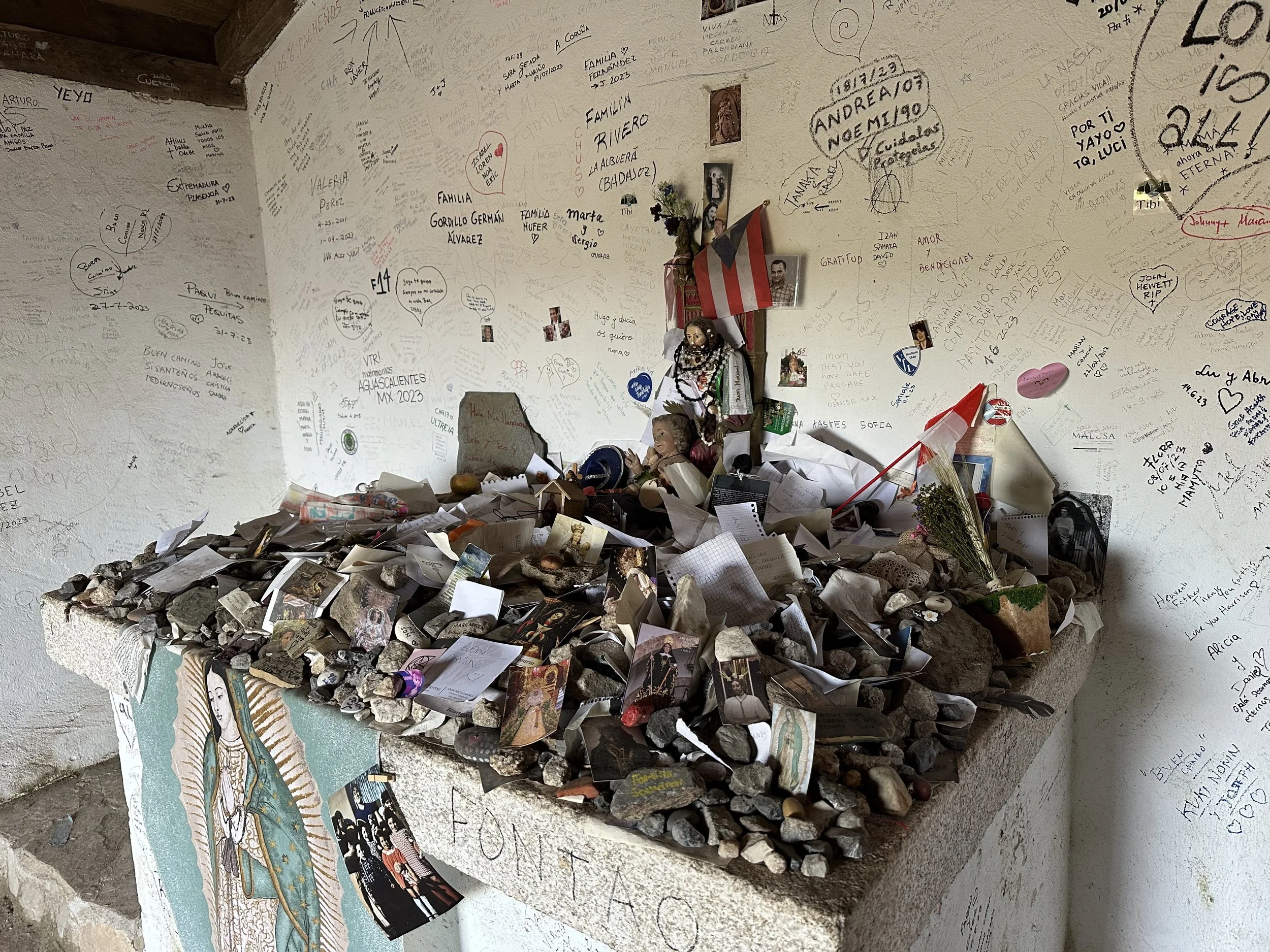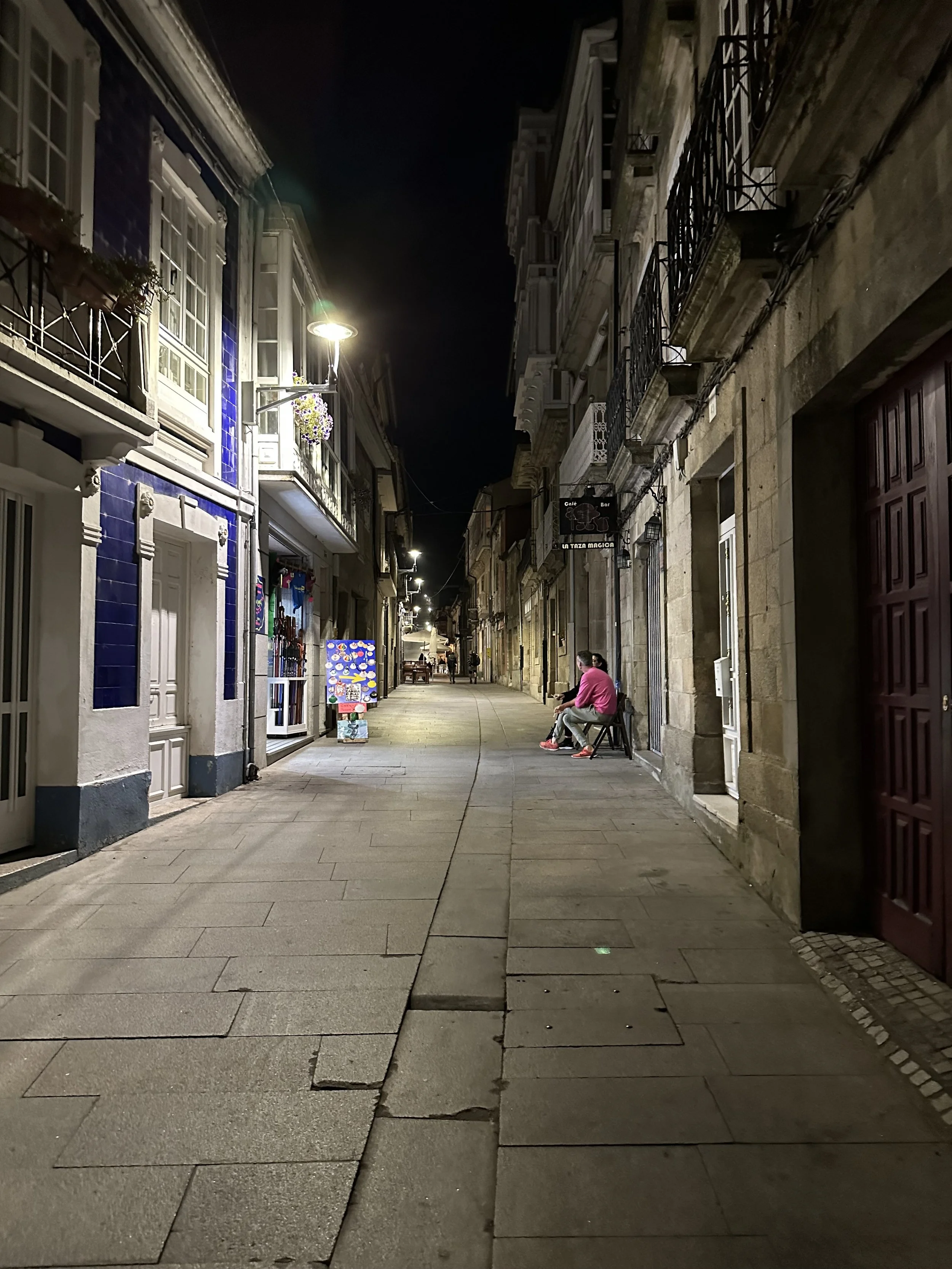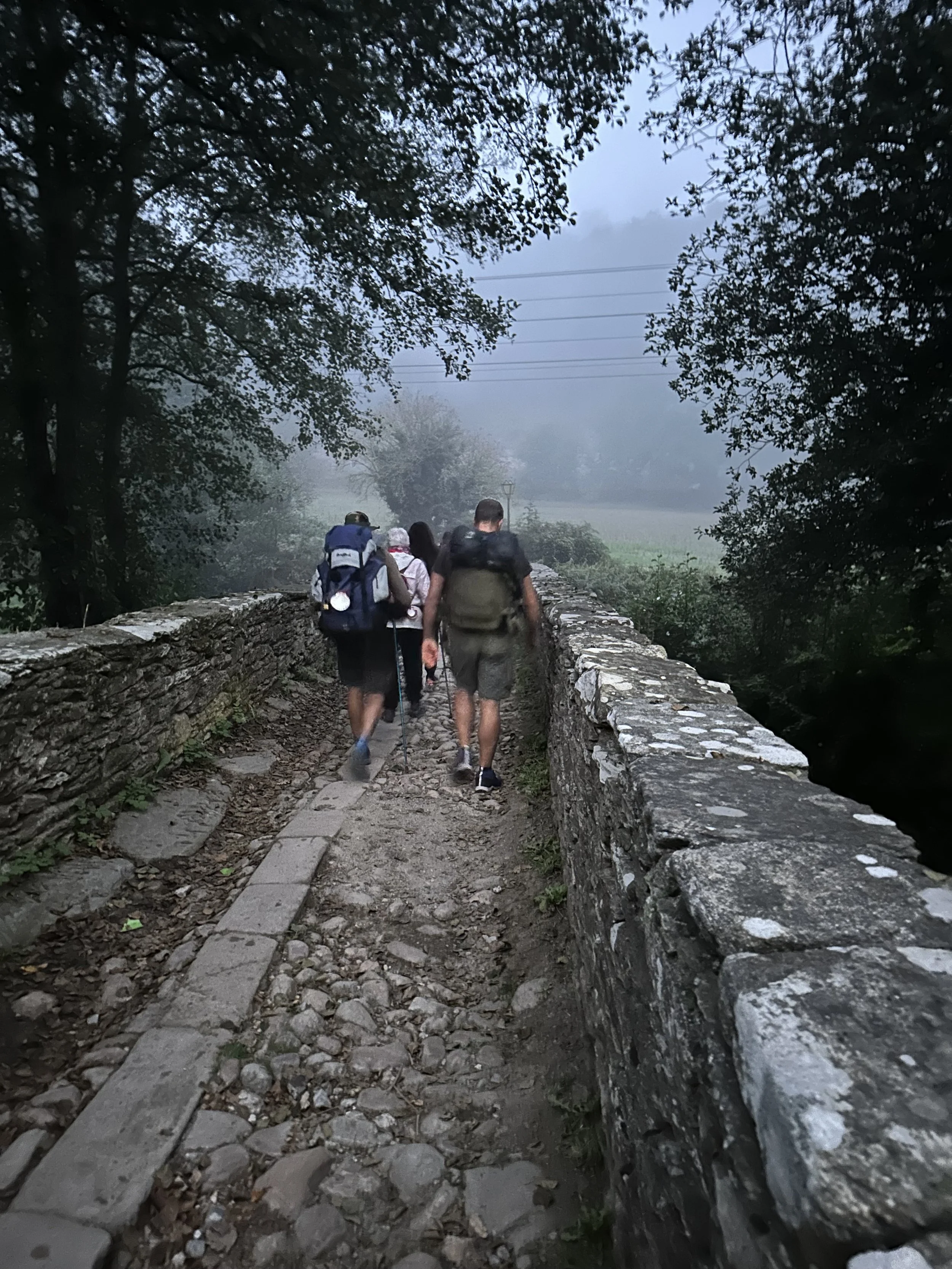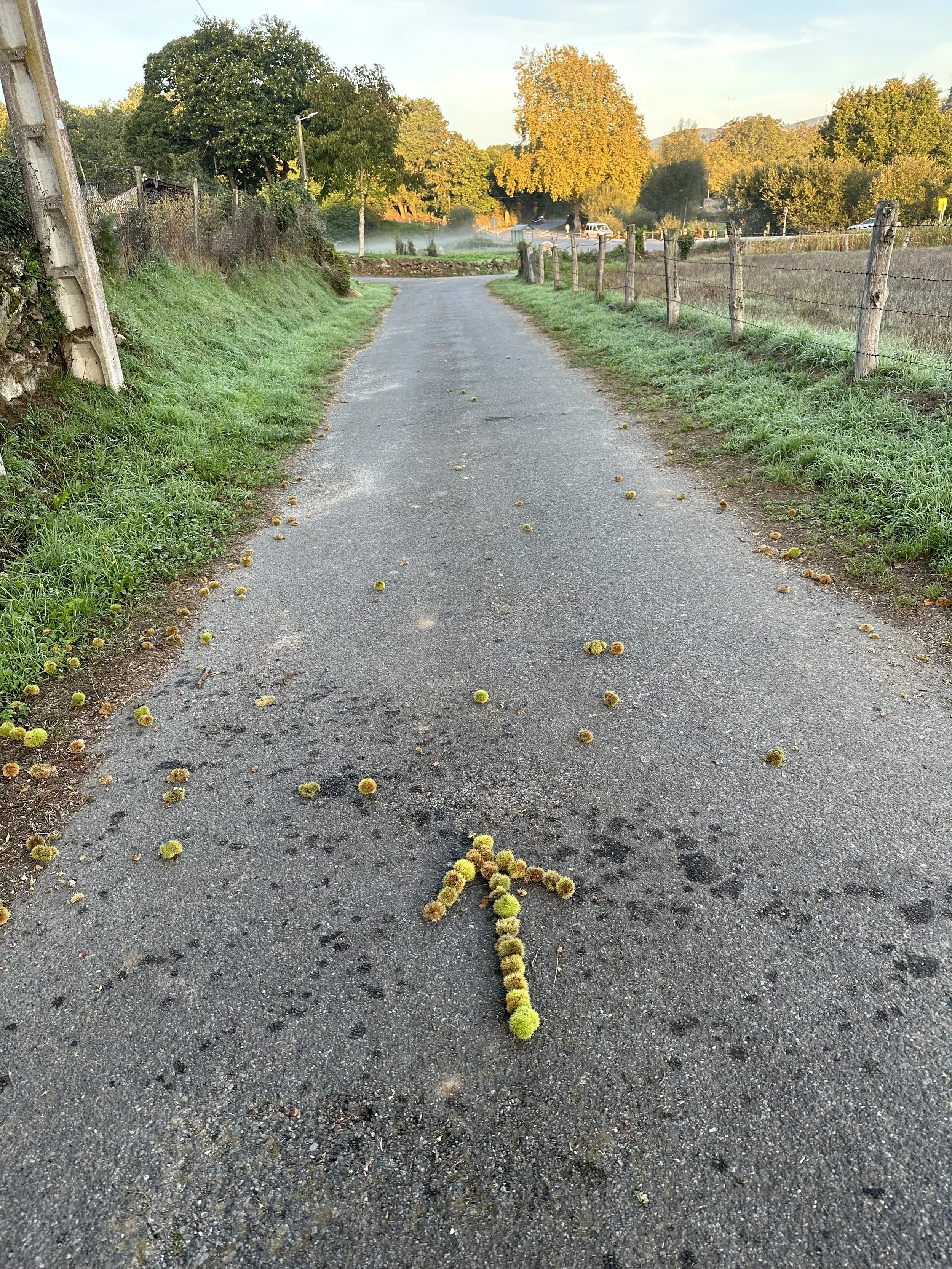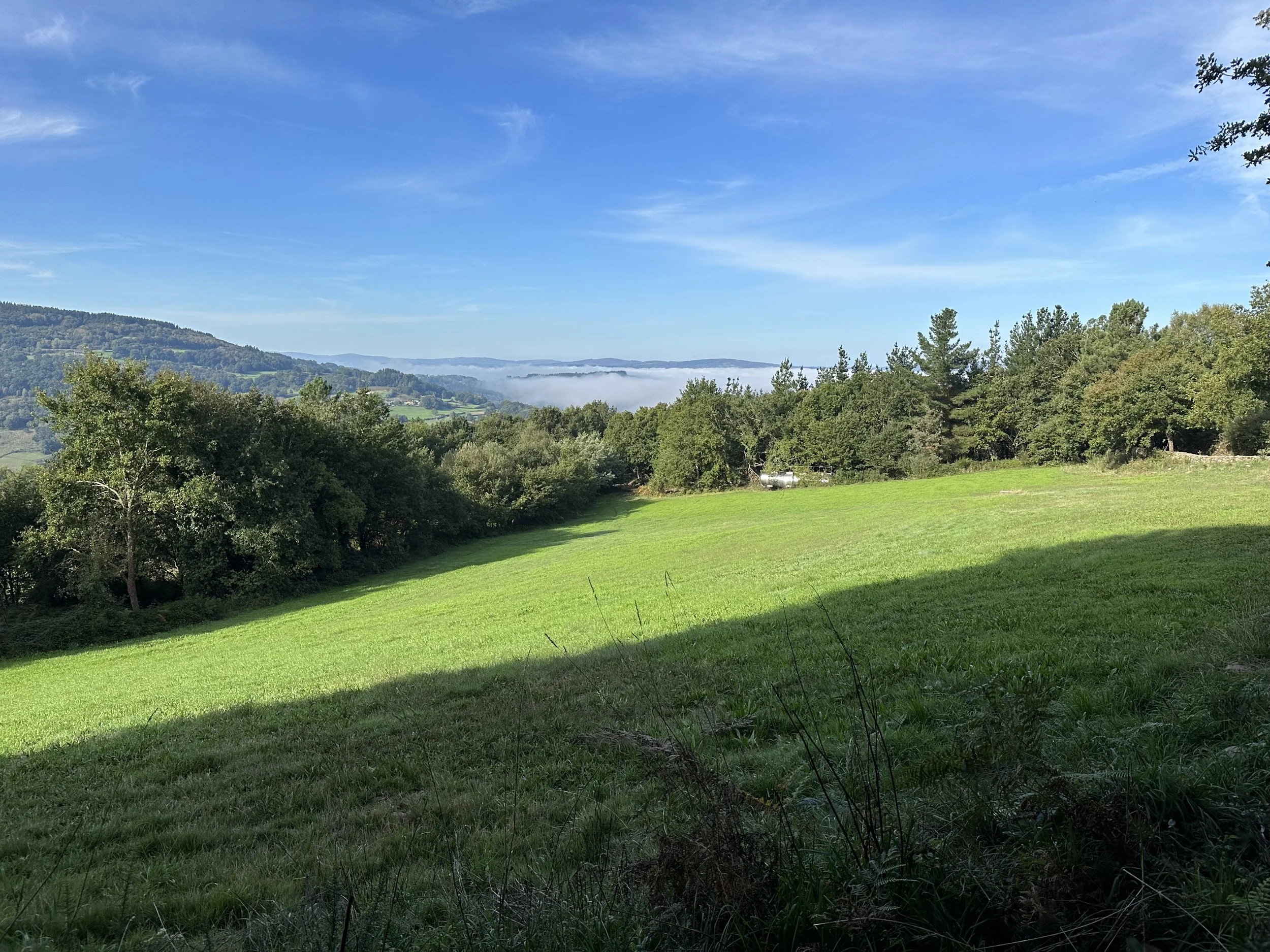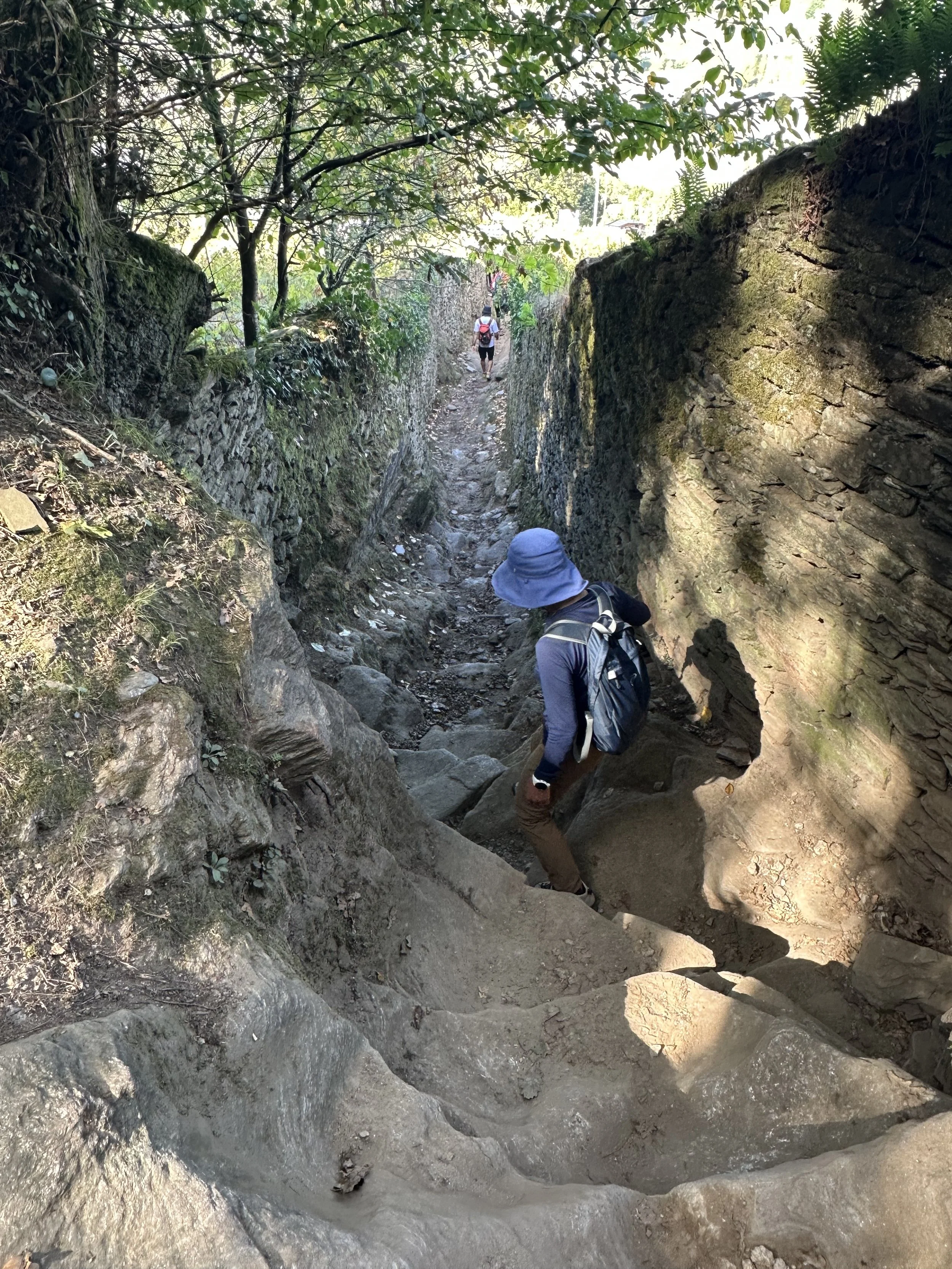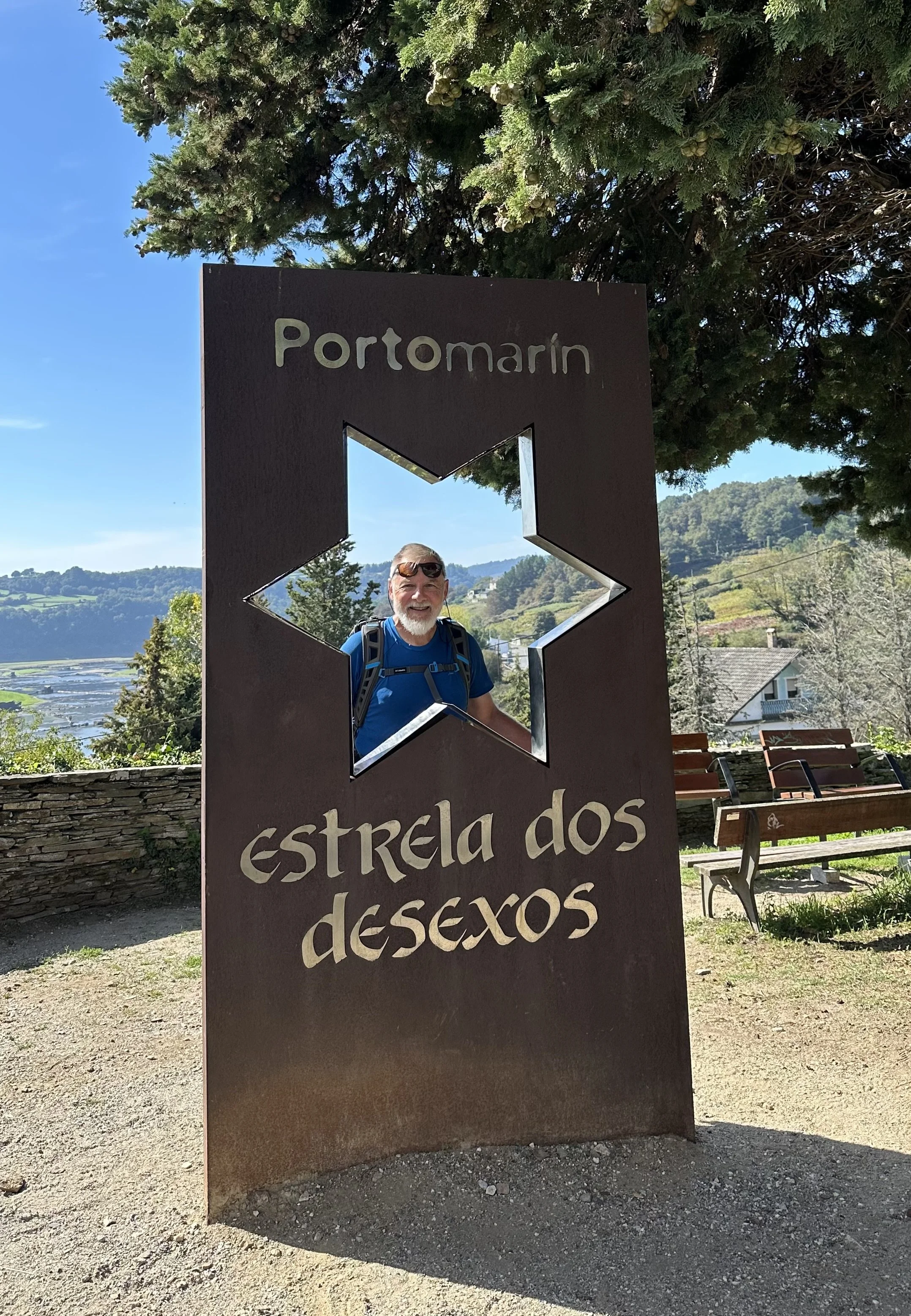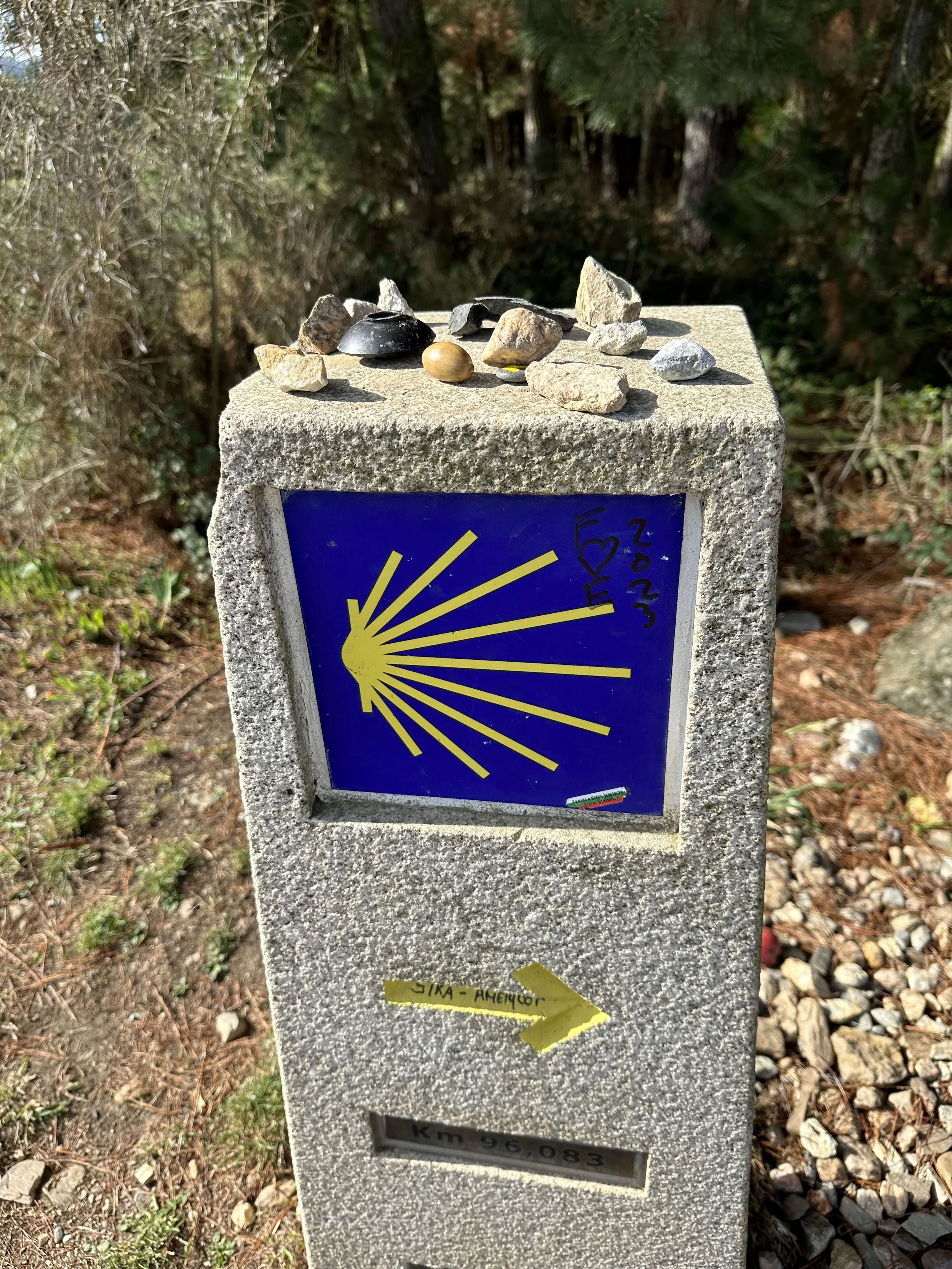Whispers from the Camino—Day 32
October 6 Sarria to Portomarin 21.0 km
The Rocks.
One of the hundreds of trail side memorials along the Camino
Every day I came upon makeshift memorials and altars where sometimes a few rocks were strewn under a picture and sometimes thousands of rocks were piled around tall crosses. It was becoming the pre-eminent symbol of the Camino—these stone gifts that represented grief or the laying down of one’s burdens or the ritualized letting go of people, attitudes and behaviors that no longer served a person well.
I was planning to head to England after this Camino to do two weeks of research on the pilgrimage routes in Britain. I had been alerted to the work of the British Pilgrimage Trust (BPT) by a fellow cyclist in another part of the country months before. The British Pilgrimage Trust is an organization that is nurturing a pilgrimage culture in England and seeking to improve its infrastructure.
Leaving Sarria in the early morning
I had been told that they were working with churches on many of the routes to promote overnight logging for pilgrims making the walk. My plan was to travel to as many as I could to see what I could learn about how the churches were using their space and their ministry to support walking and cycling pilgrims.
I made a call to Dawn Champion, the Director of Community Development of the BPT. She was expecting the call as I had contact with her before I left for the Camino and told her I would call her as I was nearing the end of the Camino. She asked about my experience so far on the Camino and I shared how powerful the day was when I came upon the Cruz de Ferro and the mound of thousands of rocks around the cross.
I shared with her how just that very morning I was lamenting how sad I was that I lived in a society that struggled mightily with making room for loss and grief. I told her how important I felt is was to see if we could create more of a pilgrimage culture in America for people to take the time to allow for their bodies and souls to make room for grief. I lamented out loud to Dawn that Americans are the kings of distraction and entertainment and avoidance. How we cover our grief with all kinds of addictions—drugs and alcohol, workaholism, sexual addictions, consumer addictions, etc.
Dawn then validated my comments as if to say, “We Brits share your concern about American distractions and addictions.” Something about having Dawn, a person from another country and deeply invested in pilgrimage work in Britain, reopened all my thoughts and feelings about the lack of room we Americans give ourselves for grief. I often feel like I am “a voice crying out in the wilderness,” and having my experience validated was a huge relief.
I thought about how easily, when something goes wrong, we Americans immediately shift toward blaming someone or even suing someone. I thought about how uncomfortable people are with solitude and silence. I remember when I first started employing silence in church services and I could hear rustling in the pews after about ten seconds. I thought about the three days of bereavement leave that many businesses allow their employees as if having enough time to attend a service is all it takes to adjust to the loss of a loved one (I am not advocating for more time off necessarily, but highlighting how often after those initial three days it is assumed that a person should have moved on).
But there was more to it. These weren’t just thoughts. I felt this in the core of my body. I grieved deeply over the absence of grief in our society. Why was it so powerful and upsetting to me? I thought about my work in churches and how much it pained me when churches said they wanted recover their former vitality, but never seemed to move an inch. Why did I care so much? For some reason not being able to get a church to budge out of their status quo felt personal to me.
As I walked I began to reflect on my own life. The answers started to emerge. I had been where the churches were for much of my early adulthood. I spent the first two decades of my adult life running from the reality of my childhood, trying to out pace the grief of early abandonment (that I had never acknowledged), and trying to cheat grief by replacing it with achievement and success.
For nearly two decades, the ghosts of my past unconsciously propelled me to becoming a national-level cyclist, graduating college with a double major and double honors, and winning a handful of scholarships and awards.
But, it came crashing down when the facade of success was finally penetrated and I had no other choice but to look honestly at my life and acknowledge the pain and loss of my childhood. I was going to have to learn to base my life on who I actually was rather than a polished image I was frantically trying to create and portray.
Navigating a rocky passageway.
My life really started when I quit running. It started when I began making decisions based on my actual reality rather than my preferred reality. And this is why I was feeling the grief so deeply about my work in the church and for our society in general.
I wanted to just grab someone by the shoulders and say, “Stop. Quit running. Let the grim reaper catch up to you. It’s not as bad or as scary as you think.” I wanted people to experience the new life-giving opportunities that show up when you quit running from the past or chasing the future.
I was grieving as a person who had been to the other side of the river, but who couldn’t seem to convince others that the other side really was worth the risks of letting go of past hopes and expectations.
Arriving in Portomarin
I recognized myself in their paralysis. I remembered the years I spent chasing a reality that would save me from feeling the loss and grief of my early years. I remember the frustration of chasing something that always seemed just beyond my reach, but never getting that the future had to be based on a radical acceptance of the present. I remember feeling like a victim as if the world was conspiring against me to keep me from achieving my future dreams.
And, mostly, I remembered how good it felt when I finally discovered that who I was at that moment was good enough. I didn’t need to become someone else. I didn’t need to earn something or prove something. My worth was not built on creating a future reality. I could simply accept my life for what it was and allow whatever future was meant to be to unfold on its own.
I was grieving for our churches and for our society. I knew what it was like to chase a dream, to try to outrun pain and loss, and turn to all kinds distractions and addictions to keep the ghosts of my life quiet. And I knew what it was like to let the ghosts out of their cages and face them and learn to appreciate them and even love them.
I wanted this for our churches. I wanted this for America.
The Camino was littered with hundreds of memorials and altars displaying the rocks that told the stories of grief recognized, losses acknowledged, forgiveness offered, and the letting go of past hopes and expectations.
The Camino blared its message, “Quit running. Lay your burdens down. Love the life you have right now.”
I was learning to embrace this in my own life. I desperately wanted to help others do the same.

